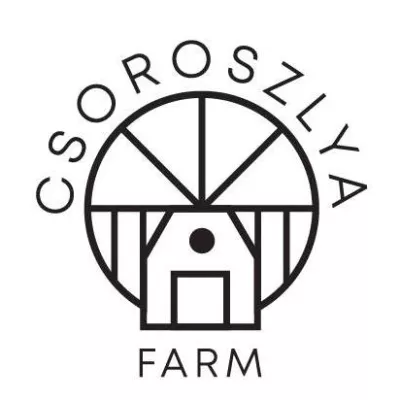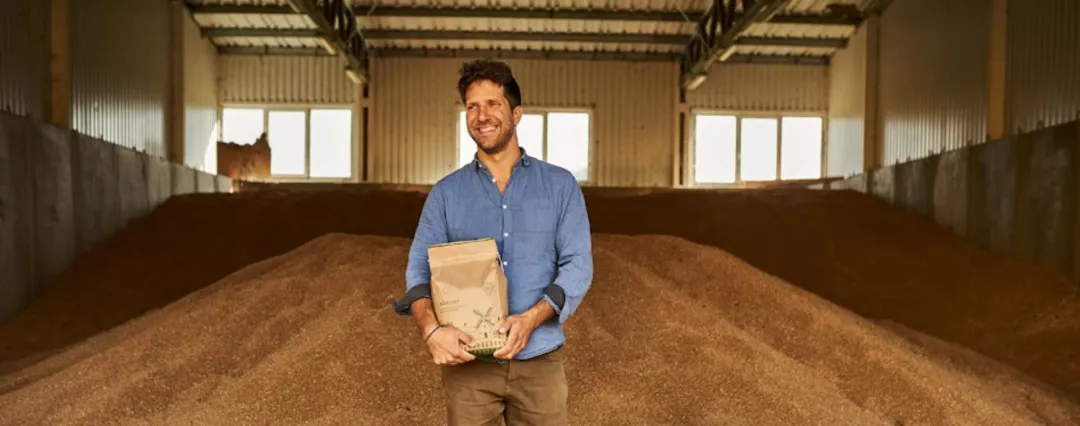General information
RDP Priority
- P4. Ecosystems management
RDP Focus Area
- 4A: Biodiversity restoration, preservation & enhancement
- 4C: Soil erosion & soil management
RDP Measure
- M11: Organic farming
Beneficiary type
- Small-Micro Enterprise
Summary
In 2015, Ágoston Nobilis took over the management of the 280 hectare (ha) farm from his father. The farm is located near Budapest, Hungary. Ágoston transitioned the farm to organic farming with the aim to produce high quality food. The farm includes a 20 ha orchard, 1.5 ha of potatoes and 258 ha of arable land. With the help of EAFRD funding, Ágoston bought an Astrie-type granite mill so he could process wheat and sell flour in response to a rising demand for flour in Hungary. The farmer also initiated a programme called ‘Bio potatoes to Budapest’ to sell his organic potatoes to Michelin starred chefs and other high quality restaurants. The farm further collaborates with the Ecological Agricultural Research Institute. While exporting to Western Europe, the ambition is to
Results
- EAFRD funding enabled the farm to maintain organic farming across 280 ha of land despite difficult economic market circumstances.
- Crop rotation was planned for the next 5-10 years based on soil testing and other aspects, from which the farm only deviates in very justified cases.
- The subsidy enabled the farm to maintain nine full-time jobs.

Promoter
Csoroszlya-Farm Ltd.
Funding
Total budget: 110 340 (EUR)*
EAFRD: 88 272 (EUR)
National/Regional: 22 068 (EUR)
* Annual payment received for three years
Ressourcen
Documents
Context
Csoroszlya Farm covers an area of 280 hectares and is located near Budapest, in Fejér County, Hungary. Ágoston Nobilis's father started buying land in 2000 on which he farmed conventionally. When Ágoston took over the farm in 2015, he set himself the goal of producing in harmony with nature. Farm production focuses on field crops, fruits and potatoes and employs nine people.
Over 90% of the farm area (260 ha) is dedicated to crop rotation of various arable crops, 20 ha are cultivated with fruit trees and 1.5 ha are potato fields. Apricots, plums and cherries are grown in an orchard and brewed into Pálinka (a traditional fruit spirit).
Ágoston operates with creativity and his vision for the business is to produce and process food to the highest standards and then sell it directly to consumers. In this way, the consumer is able to track the entire journey of the food and experience its high quality.
The ambition of Ágoston is to actively cooperate with other organic farms and research institutes to farm in a modern and sustainable manner, benefitting from continuous learning through the exchange of experience. The farm also participates in several research and development collaborations.
The 'Bio potatoes to Budapest' initiative was also Ágoston’s idea and today the farm supplies potatoes to many Michelinstarred and other high quality restaurants in Hungary.
Despite his successes, it is difficult to maintain organic farming in the current market situation as selling prices have drastically decreased over recent years.
Objectives
While most of the farmer’s crop was sold in an unprocessed form to the Western European market, it was a long term goal of the farm to expand sales domestically and to react directly to market demands in Hungary. When the demand for high quality organic flours and bakery products increased dramatically, Ágoston’s plan was to start processing his grain on-farm, particularly as the farm specialised in the preservation of old varieties and ancient grains, which promised excellent results. For this purpose, an EAFRD application was written with the aim to co-finance the purchase of an Astrie-type granite stone mill and to build relevant processing capacities for producing high quality flour. Other objectives included general support for maintaining organic production and processing on the farm.
Activities
The main project activities involved the writing of the EAFRD funding application form for which Ágoston received support from a village advisor. The application process was relatively straight forward comprising a simple application form. However, formal requirements and regulations need to be met before an applicant can receive support. For example, the organic certification needed to be proven. Once the grant application was approved, the Astrie-type granite stone mill was purchased and installed on the farm.
The support received for maintaining organic farming on the arable land amounted to 350 EUR/ha/year, and on the orchard, it amounted to 967 EUR/ha/year.
Main results
The main results included the following:
- EAFRD funding enabled the farm to maintain organic farming across 280 ha of land despite difficult economic market circumstances.
- The EAFRD grant also supported the farm in continuing its innovative development activities whereby Ágoston’s farm serves as an example to many other farmers. This resulted in the farm being chosen as a research station for the ÖMKi Ecological Agricultural Research Institute.
- Crop rotation was planned for the next 5-10 years based on soil testing and other aspects, from which the farm only deviates in very justified cases.
- Soil testing is an ongoing job that is required to be undertaken every five years for organic certification. However, as part of his high quality approach to production, the quality of the soil is key. As such, Ágoston carries out soil tests every 2-3 years.
- The subsidy enabled the farm to maintain nine full-time jobs on the farm.
Key lessons
- As general advice for new organic farmers, it should be noted that it takes quite a few years to develop an established system of production in organic farming.
- The papilionaceous plant is a very important element of organic field farming. Its roots carry beneficial symbiotic bacteria that help fix nitrogen in the soil. Establishing a market for this is vital.
